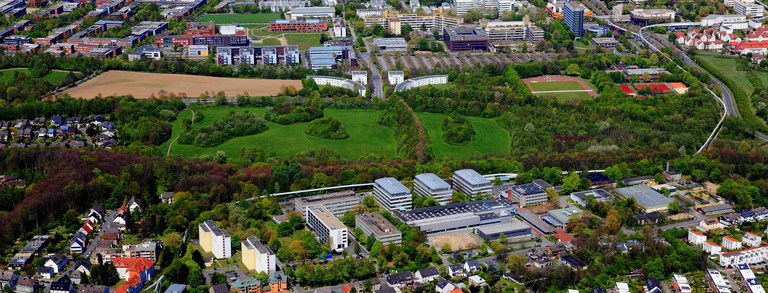Real Laboratory City
Spatial planning and urban design are action-oriented and are always related to everyday social space. Thus, urban research, unlike clinical laboratories, has different conditions for each experimental arrangement. And: after an experiment, the city does not return to its previous state. At each experimental site, individual actors with their previous influences and options for action encounter complex problems that need to be researched and taken into account for a successful transformation. After all, the European city is already largely built, and the existing structure represents our future and resource. The way we deal with it, its transformation and the underlying process qualities, including the actors involved and the perspectives linked to them, are the topics that guide our research. Our goal is to generate relevant knowledge for urban planning, land use planning and underlying processes and to mediate between theory and practice. The exchange in and about successful cooperative urban development processes as well as research collaborations is of great importance. Experiential knowledge is to be permanently researched and further translated into research, practice and teaching.
Research fields
- Urban and Digital Transformation
- Cooperative Urban Planning
- Process Design
- Artistic urban and neighborhood development and urban practice
- Just Cities, resource-efficient urban development and climate-resilient neighborhoods
Guiding principles are for us
- Urban development qualification
- Mediation of building culture
- Pointing out future scenarios and development perspectives
- Interdisciplinary work
Our Research Focus
StadtPraxisLabor (Laboratory for City-Making / Urban Unit)
In the StadtPraxisLabor, both digitization processes in urban development and land use planning as well as digital participation tools are researched and tested on a 1:1 basis. The focus lays on practice-based and practice-relevant knowledge, which also generates knowledge about planning action and the planning discipline itself. Another important aspect is to derive conclusions for education and curricula in order to qualify future spatial planners for the application of this knowledge.
The StadtPraxisLabor is a collaborative format in which students are encouraged to undertake research placements in municipalities, civil society initiatives, research institutions and business enterprises, and to make experiential knowledge accessible in a self-reflective format using methods of participant observation and embedded research.
If you would like to cooperate with us, please contact us!
Current dissertations in the field can be found here!
Civic-Public-Partnerships
Under the title of "civic-public-partnerships" organization, roles, responsibilities and process structures are researched. The research field spans the meaning, production and action possibilities of experimental spaces for innovation as well as which and how the different actors in urban development can cooperate and what contribution alternative actors make. The focus is on common good-oriented and innovative urban development projects and networks, alternative neighborhood developments, (cooperative) building communities.
New forms of cooperation and alternative actors in urban development
The focus here is on the investigation and derivation of explanatory models and rationales for the potentials and conditions of successful cooperations. The aim is to derive models as well as basic procedural structures in which such conditions can be developed and implemented, that would exhibit stable viability.
Transversal process design
The research focuses on the investigation of participatory planning processes. The aim is to identify adjusting-parameters (spatial, temporal, personnel, contextual) for the structuring of processes that enable a non-hierarchical transfer of knowledge. These are to be tested experimentally in practical trials in order to develop methods and instruments that promote the productive exchange of local everyday knowledge with expert knowledge - and to work out what requirements are placed on these process interfaces.
Innovation potentials of informal procedures and artistic methods
in urban development and urban land use planning processes
For the embedding and participation of civil society in urban development, innovative methods and tools are being developed and researched. Digital planning tools as well as artistic tools are to be further investigated. In addition to the design of such processes, the central question is the contextual applicability of known and new innovative methods in order to make a (reliable) statement for the changed qualities of urban development that can be achieved through them.
On an overarching and summarizing level, we are committed to the ongoing urban design qualification of the 11th Sustainable Development Goals (SDGs) Make cities and human settlements inclusive, safe, resilient and sustainable and thus to the goal of the Just City: How can cities be developed to be socially just, participatory and sustainable?
These goals require a self-critical approach to questions of equitable urban development, equal opportunities and participation. In order to be able to act in this regard in the future, suitable analog as well as digital methods and tools are needed that are to be researched and tested in order to acquire knowledge and competencies in dealing with participation, as well as political decision-making processes, and to achieve the sustainable and lasting transformation of our places of living in the long term.






